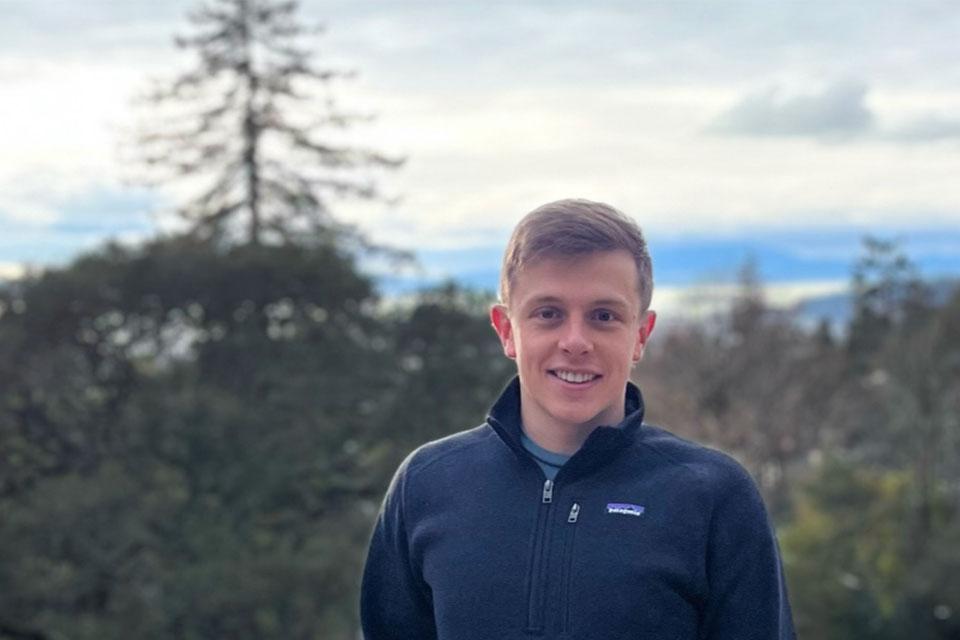Dr Alex Picksley from the Department of Physics has been awarded the Institute of Physics’ Culham Thesis Prize: Plasma Physics Group. The annual prize recognises a well-explained thesis that demonstrates a good understanding of the subject and shows significant new work and originality.
Dr Picksley’s thesis is entitled ‘Low density plasma waveguides for multi-GeV laser Wakefield accelerators' and looks at development of laser-produced plasma channels suitable for building the next generation of particle accelerators.
When light is focused down to a small spot, it rapidly starts to spread out again and drop in intensity in a process called diffraction. A key component of laser plasma accelerators, a possible method for next generation particle accelerators, is keeping the laser pulse highly-intense over several centimeters. Dr Picksley’s thesis focuses on using a laser pulse to form a long, cylindrical light pipe in which ultra-high intensity lasers can be guided over several centimeters – suitable for high energy gain laser plasma accelerators. In his thesis, he develops the concept to meter-scale and looks at how these plasma channels can be used to accelerate electrons to multi-GeV energies.
‘I am really pleased to be recognised for the award,’ comments Dr Picksley, ‘which is a reflection of a great deal of work undertaken by the whole laser-plasma accelerator group at Oxford. I am incredibly thankful to Professor Simon Hooker and to Professor Roman Walczak for their support over the past four years, which were made difficult by the circumstances of the pandemic.’
Professor Walczak comments: ‘Congratulations to Alex for getting the Culham Thesis Prize and being the first to realise that guided high intensity laser pulse makes hydrodynamic optical-field-ionized (HOFI) plasma waveguide deeper and improves its attenuation length by orders of magnitude.’
Professor Hooker concludes: ‘I am delighted for Alex, who thoroughly deserves this award. In his thesis, and associated journal papers, Alex showed that HOFI plasma channels could guide relativistically-intense laser pulses over 100s of mm, and that their properties are well suited to multi-GeV laser-driven plasma accelerators. I look forward to seeing how Alex’s contributions influence the development of the field.’

